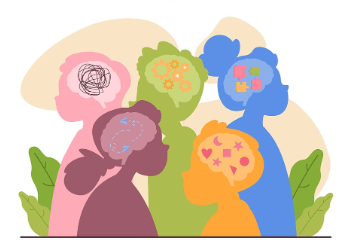
inspiring.team/Shutterstock
In episode 53 of the HigherEdJobs Podcast, Andy and Kelly spoke with Judy Reilly, director of the Center for Neurodiversity and Employment Innovation at the University of Connecticut. She described the university’s unique mission to create programs and resources to decrease barriers for neurodivergent adults seeking meaningful employment.
Reilly previously wrote about the importance of supporting neurodivergent students as they seek employment following graduation for HEJ.
At the center, Reilly leads these efforts based on her unique knowledge of autism, attention-deficit/hyperactivity disorder (ADHD), dyslexia, and other neurodivergent conditions.
While statistics may vary and the research itself is nascent, she said that that one in five people – or 20% of our population – fit the criteria for a diagnosable neurodivergent condition. She and her team serve anyone who has a difference in brain function or behavioral traits that block them from finding and retaining employment commensurate with their talents.
What is neurodiversity? Reilly said that we “all have cognitive differences and uniqueness,” just like our distinctive fingerprints.
“The more you behave in a way and think and perceive the world in a way that’s just different from how the world is structured, you become divergent,” she said. “Neurodiversity has to do with our whole species, and it’s a strengths-based perspective to say, ‘Hey, we need all of these differences,’ just like biodiversity exists for a reason.”
To better support neurodivergent students, Reilly said that leaders must consider how to structure things like employment hiring and managerial practices and retention strategies. In addition, it’s important to start with the basics, including proper definitions of neurodiversity and neurodivergent.
Being neurodivergent creates tremendous strengths and talents. But it also can lead to unique biases, Reilly said.
Sometimes people really appreciate, from a learning aspect, these kinds of labels or diagnoses or cognitive considerations, and you don’t need to know what those are to be a good human and understand neurodivergent, she said.
Listen to the entire episode for more from Judy, Andy and Kelly. Have a question for HEJ to explore on the podcast? Email us at podcast@higheredjobs.com.

